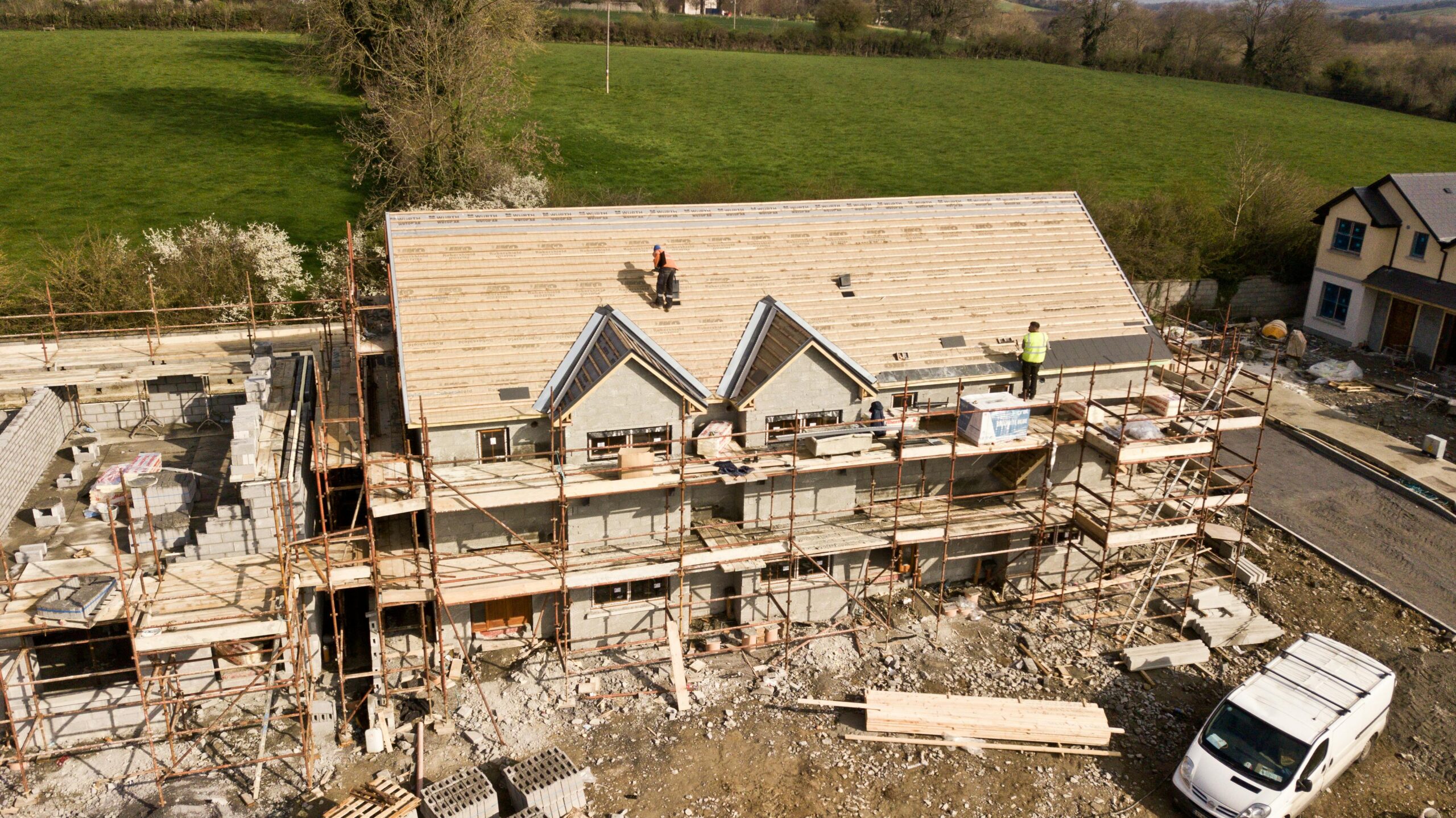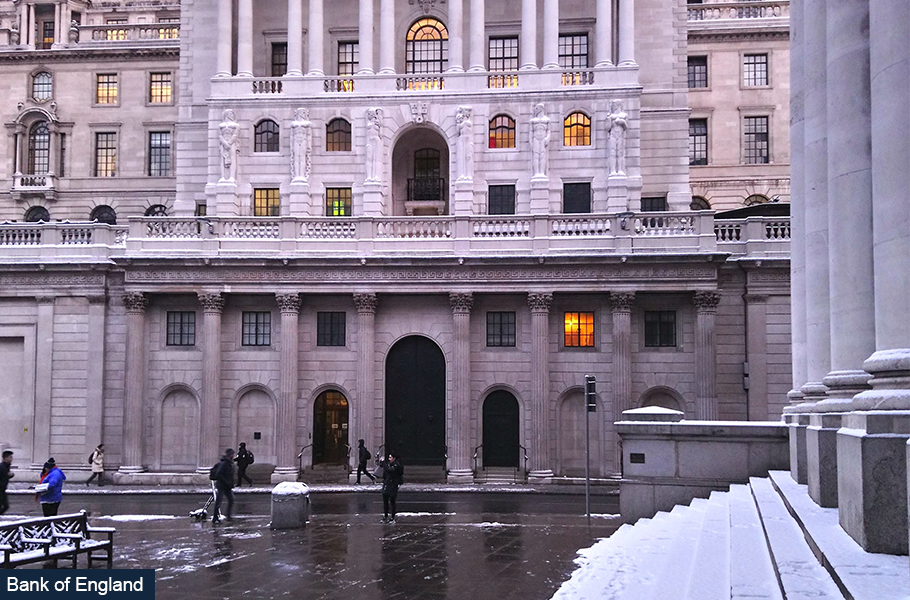Making renovations on your home is an exciting, and equally daunting task, that can leave you with a lot of questions regarding your insurance, or rather which insurance do you need if you’re making big changes.
Here the home insurance experts at Adrian Flux answer all the questions you may have regarding home renovation insurance, and whether you need it at all.
What is home renovation insurance?
Home renovation insurance is designed to protect your property and the content inside whilst you are having building work carried out. It is mainly there to cover you for potential risks that can occur when you’re making large changes to your home; including fire, theft or injury.
If you plan on making major structural changes to your home, chances are you’ll need home renovation insurance. This way, you’ll be covered against a wide range of risks for as long as the work takes place.
Good, comprehensive renovation insurance will cover the existing structure, your fixtures and fittings and any new work. It will also cover your liability as the property owner.
The insurance will provide cover from the start of your home renovation until it’s due to be finished.
Policies can differ between providers but you’re typically covered for:
- Accidental damage
- Damage to the structure of the property
- Damage to the contents of your home, including through fire and flooding
- Unoccupied property insurance, if you can’t stay there for more than 30 days
- Theft of building materials, tools and equipment
- Damage to a neighbour’s property as a result of the work
- Public liability cover in case of injuries
- Legal expenses should there be a dispute
- Alternative accommodation if the home becomes uninhabitable
Does my home insurance cover renovations?
The majority of home insurance policies will only cover you for small projects such as DIY ventures. However, you should always check your policy documents or speak to your insurer to understand what is and isn’t covered by your home insurance.
Depending on what the work is and the value of it, a standard buildings insurance policy might cover you. Renovations such as fitting a new kitchen or bathroom could be classified as minor work and could fit within your current home insurance policy, but this is not always the case.
More extensive structural work such as knocking down or replacing walls, a loft or garage conversion or an extension will most likely not be covered and will require renovation insurance.
Should I tell my insurer about new renovation work?
You should always tell your insurer of any major work being done within your household in case you are not covered by your home insurance.
If you start the work before you take out a renovation policy and if something were to go wrong and you need to make a claim, your insurance will be invalidated, meaning the bill to fix your home or replace stolen goods will land at your door.
Insurers use rebuild values to calculate how much your home would be to rebuild, should a disaster happen, to calculate the price of your insurance. Renovations can affect the price, usually driving the house price higher due to the improvements to your property.
If the work being done is relatively minor, your current policy might cover you, or you might need to pay a small additional premium to boost your protection. Just make sure you understand exactly what will be covered. And if the work will take longer than expected, or plans change during the renovation, just inform your insurer so they can update your policy.
Your insurer will also want to know how much the work will cost, how long it will take to complete, whether your property will be unoccupied during the renovation and your contractors details, including whether they have public liability insurance.
It should go without saying, but whenever you buy insurance you must be honest with your insurer and not withhold any information they need to know about.
What kind of renovations do I need to disclose?
This is the multi-million-pound question that you may be asking yourself when thinking about making changes to your home.
Whilst every home insurance policy is different, you will need to update your insurer if you’re planning on the following:
- Fitting a new roof
- Alterations to the layout of the house such as an extension
- Loft, cellar, basement or garage conversions
- Structural changes to the layout of your home
- Removing a load-bearing wall
- Installing double-glazing or triple-glazing
- Making large cosmetic improvements, such as ripping out a kitchen and fitting a new one
- Making changes to the wiring or plumbing
- Installing new cladding
The reason why you need renovation insurance for these jobs is to ensure you are not being left with a hefty bill, should something go wrong. Having builders on site brings more security risks as it is advertising to potential burglars that you have expensive equipment being used on your property. You are also running the risk of accidental damage caused by tradespeople who might not be covered. While your builders should ideally have public liability insurance, it’s best not to leave things to chance.
What kind of renovations don’t I need to disclose?
As mentioned previously it’s always best to check with your insurer as to what your policy states, but you don’t generally need to inform them if you are making any of the following changes:
- Replacing flooring such as carpet, tiles or laminate flooring
- Painting
- Wallpapering
- Retiling a bathroom or kitchen
- Having new wall units fitted
Renovation insurance for unoccupied homes
If you are planning to leave your home unoccupied for 30 days or more whilst work is being carried out, your home renovation insurance can provide you with the level of cover needed to not invalidate your home insurance.
You might also have large amounts of expensive materials, equipment and tools at your house that will need to be covered against damage or theft.
It can also pay out for alternative accommodation if things go wrong, forcing you to move out.
Do renovations increase my standard home insurance costs?
Depending on the work that is being done on your home, your standard home insurance may rise as a result of the renovations.
Major construction changes such as extensions can result in a higher premium the following year, as you are adding value to your house, which in turn increases the insurer’s cost to rebuild your home if the worst were to happen.
As a rule of thumb, if the renovations increase the price of your home, you can expect your home insurance to increase as a result.
It’s incredibly important to tell your home insurance provider if the property value has increased. Failing to do so may mean that your home is underinsured if you need to make a claim in the future.
An easy way of finding out whether the value has increased is by asking an estate agent to take a look around your home and give you an estimate, or you can use a property investment calculator.
What other insurance is needed for home renovations?
Apart from renovation insurance, there are a number of other insurances you may wish to consider for both yourself and the builders you hire.
- Contents insurance – whilst you presumably already have this, it may be worth looking at upgrading if you are adding extra valuable items into your home after the work has been completed.
- Gadget insurance – particularly handy if you are investing in brand-new gadgets for your home.
- Legal expenses insurance – this is an add-on to your home insurance to cover any expenses that arise from taking legal action against any dodgy work by builders, and protects you if legal action is taken against you.
Insurance your tradesmen should have
- Public liability insurance – this covers tradesmen for injury or damage caused in the course of their work. Whilst not a legal requirement, you should view it as a must for the tradespeople you hire.
- Contractors’ insurance – An all-in-one policy which offers a range of protection, including public liability and contract works insurance.
- Builders’ insurance – offering protection both on and off-site. This includes employers’ liability insurance, which is a legal requirement if they have any employees.
What to do when the renovations are complete?
Simply inform your insurer that the builders have now left and the job has been completed. They will then be able to update your home insurance to ensure you have the right level of coverage against your house.
Home renovation insurance you can trust
Get home renovation insurance while your property is undergoing repairs, maintenance and makeovers. Our insurance protects you financially against incidents that take place while the building work is underway, including fire, theft, injury and accidental damage. We can also cover your property if it remains unoccupied during renovations.
For our best rates, call 0344 381 6505 or book a callback at a time that works for you.
Publisher: Source link











